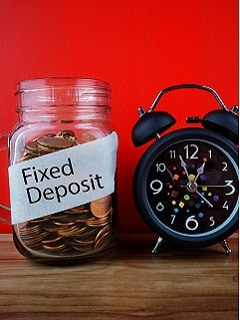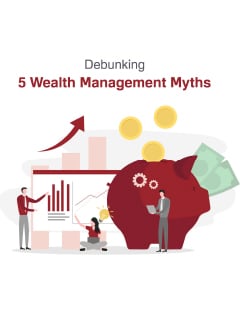CKYC Registry
-
Customer Service Contact us Service request Locate a branch
Find all the help you need
Scan the QR, get our app, and find help on your fingertips

Help CenterSupport topics, Contact us, FAQs and more
-
Login
Are you ready for an upgrade?
Login to the new experience with best features and services
-
Login
Are you ready for an upgrade?
Login to the new experience with best features and services
- Accounts
-
Deposits
IDFC FIRST Bank Deposits
View all Deposits -
Loans
IDFC FIRST Bank Loans
View all Loans - Wealth & Insure
-
Payments
IDFC FIRST Bank Payments
View all Payments -
Cards
IDFC FIRST Bank Cards
View all Cards - Blogs
- Corporate Account
-
Cash Management Services
IDFC FIRST Bank Cash Management Services
View all Cash Management Services - Supply Chain Finance
-
Corporate Lending
IDFC FIRST Bank Lending
View all -
Treasury
IDFC FIRST Bank Treasury
See more details - NBFC Financing
Support topics, Contact us, FAQs and more
- IDFC FIRST Bank Accounts
-
Savings Account
-
Corporate Salary
Account -
Senior Citizens
Savings Account -
First Power
Account -
Current Account
-
NRI Savings
Account -
TASC Institutional
Account -
Savings Account
Interest Calculator
- IDFC FIRST Bank Deposits
-
Fixed Deposit
-
Recurring Deposit
-
NRI Fixed Deposit
-
Safe Deposit Locker
-
FD Calculator
-
RD Calculator
- IDFC FIRST Bank Loans
-
Personal Loan
-
Consumer Durable
Loan -
Home Loan
-
Business Loan
-
Professional Loan
-
Education Loan
-
New Car Loan
-
Pre-owned Car Loan
-
Two Wheeler Loan
-
Pre-owned Two
Wheeler Loan -
Commercial Vehicle
Loan -
Gold Loan
-
Loan Against Property
-
Loan Against Securities
-
Easy Buy EMI card
-
Personal Loan
EMI Calculator -
Education Loan
EMI Calculator -
Home Loan
EMI Calculator -
EMI Calculator
-
Personal Loan Eligibility Calculator
- IDFC FIRST Bank Wealth & Insure
-
FIRST Select
-
FIRST Wealth
-
FIRST Private
-
Mutual Funds
-
Sovereign Gold Bond
-
Demat Account
-
Term Insurance
-
Life Insurance
-
Health Insurance
-
General Insurance
-
Bonds
-
Loan Against
Securities -
Portfolio Management
Service
- IDFC FIRST Bank Payments
-
FASTag
-
Credit Card
Bill Payments -
UPI
-
Funds Transfer
-
Forex Services
-
Pay Loan EMI
- IDFC FIRST Bank Cards
-
Ashva :
Metal Credit Card -
Mayura :
Metal Credit Card -
FIRST Millennia
Credit Card -
FIRST Classic
Credit Card -
FIRST Select
Credit Card -
FIRST Wealth
Credit Card -
FIRST WOW!
Credit Card -
Deals
-
Debit Cards
-
Co-branded Cards
-
Credit Card
EMI Calculator -
FIRST Corporate
Credit Card -
FIRST Purchase
Credit Card -
FIRST Business
Credit Card
- Premium Metal Credit Cards
-
AshvaLifestyle1% Forex₹2,999
-
MayuraLifestyleZero Forex₹5,999
-
FIRST PrivateInvite Only
- Best for travellers
-
MayuraZero ForexMetal₹5,999
-
Ashva1% ForexMetal₹2,999
-
FIRST WOW!Zero ForexTravelLifetime Free
-
FIRST SWYPTravel OffersEMI₹499
-
FIRST Select1.99% ForexLifestyleLifetime Free
-
FIRST Wealth1.5% ForexLifestyleLifetime Free
-
Club VistaraTravelLifestyle₹4,999
-
IndiGo IDFC FIRST Dual Credit CardTravelLifestyle₹4,999
- Max benefits, Free for life
-
FIRST Classic10X RewardsShoppingNever Expiring Rewards
-
FIRST Millennia10X RewardsShoppingNever Expiring Rewards
-
FIRST Select10X RewardsLifestyle1.99% Forex
-
FIRST Wealth10X RewardsLifestyle1.5% Forex
-
FIRST WOW!RewardsTravelZero Forex
-
LIC ClassicRewardsInsuranceShopping
-
LIC SelectRewardsInsuranceShopping
- Reward Multipliers
-
AshvaLifestyleMetal₹2,999
-
MayuraLifestyleZero Forex₹5,999
-
FIRST ClassicNever Expiring RewardsShoppingLifetime Free
-
FIRST MillenniaNever Expiring RewardsShoppingLifetime Free
-
FIRST SelectNever Expiring RewardsLifestyleLifetime Free
-
FIRST WealthNever Expiring RewardsLifestyleLifetime Free
- Rewards & Credit on UPI
-
FIRST Power+FuelUPI₹499
-
FIRST PowerFuelUPI₹199
-
FIRST EA₹NVirtual1% Cashback₹499
-
FIRST DigitalVirtualUPI₹199
-
IndiGo IDFC FIRST Dual Credit CardUPITravelDual cards
- Fuel and Savings
-
FIRST PowerRewardsUPI₹199
-
FIRST Power+RewardsUPI₹499
-
LIC ClassicRewardsInsuranceShopping
-
LIC SelectRewardsInsuranceShopping
- Express and Flaunt
-
AshvaMetal1% Forex₹2,999
-
MayuraMetalZero Forex₹5,999
-
FIRST SWYPEMIOfferMAX₹499
-
FIRST MillenniaRewardsShoppingLifetime Free
- FD Backed rewarding Credit Cards for all
-
FIRST EA₹NVirtualCashback₹499
-
FIRST WOW!Zero ForexTravelLifetime Free
-
CreditPro Balance TransferTransfer & SaveReduce InterestPay Smartly
- IDFC FIRST Bank NRI Forex Solutions
-
Send money to India-Wire transfer
-
Send money to India-Digitally
-
Send money abroad
-
Max Returns FD (INR)
- IDFC FIRST Bank MSME Accounts
-
Platinum Current
Account -
Gold
Current Account -
Silver Plus
Current Account -
Merchant Multiplier
Account -
Agri Multiplier
Account -
TASC Institutional
Account -
Dynamic Current
Account -
World business
Account -
First Startup
Current Account
- IDFC FIRST Bank Business Loans
-
Business Loan
-
Professional Loan
-
Loan Against Property
-
Business Loan for Women
-
Working Capital Loan
-
Construction Equipment Loan
-
Machinery Loan
-
Healthcare Equipment Loan
- IDFC FIRST Bank Business Solutions
-
Payment Solutions
-
Tax Payments
-
Doorstep Banking
-
Point of Sale (POS)
-
Escrow Accounts
-
NACH
-
Payment Gateway
-
UPI
-
Virtual Accounts
-
As per amendment in the Income Tax Rules, PAN or Aadhaar are to be mandatorily quoted for cash deposit or withdrawal aggregating to Rupees twenty lakhs or more in a FY. Please update your PAN or Aadhaar. Kindly reach out to the Bank’s contact center on 1800 10 888 or visit the nearest IDFC FIRST Bank branch for further queries.
-
-
Most Searched
Sorry!
We couldn’t find ‘’ in our website
Here is what you can do :
- Try checking the spelling and search
- Search from below suggestions instead
- Widen your search & try a more generic keyword
Suggested
Get a Credit Card
Enjoy Zero Charges on All Commonly Used Savings Account Services
Open Account Now
Investing money is essential for attaining financial independence. Once you retire, there might not be an active income to rely on, which is when you need a strong corpus to manage your expenses. There are several investment avenues that one can choose from to build their wealth. Market-linked products are risky, that’s why people with low-risk appetite often opt for fixed deposits (FDs).
Fixed deposits are traditional instruments that many people choose to invest in, given the safety and security they offer. If you are looking to invest in an FD, read on to learn more about this investment avenue.
READ MORE
What is a fixed deposit?
A fixed deposit is one of the many investment instruments that you can invest in. Fixed deposits are offered by both banks as well as non-banking financial institutions (NBFCs). You can invest a fixed sum in an FD for a specific period of time at a given rate of interest. The interest rate of a fixed deposit can vary as per each financial institution’s terms. You can choose fixed deposits with different tenures starting from 1 week to even 10 years.
For instance, IDFC FIRST Bank offers up to 7% p.a. returns on your fixed deposits (7.50% for Senior Citizens). You can choose to receive interest from your fixed deposit either monthly, quarterly or at maturity based on your needs.
Fixed deposit interest rates are usually higher than that of savings accounts.
Advantages of investing in fixed deposits
Here are five reasons why you should consider investing in a fixed deposit:
· Guaranteed returns
Unlike market-linked investment options, such as stocks, a fixed deposit is not affected by market volatility. This means that the FD interest rates do not fluctuate and will remain stable throughout its tenure. The returns that you will receive after the fixed deposit matures are assured, which makes it easy to plan your financial goals.
· Flexibility to withdraw funds
Some investment instruments like tax saver deposits do not permit the investor to withdraw funds mid-way in their lock-in period. However, a fixed deposit provides a lot of flexibility in this regard. In case of a financial emergency, you can dip into your funds before the maturity of your fixed deposit. Banks may levy some nominal charges on premature withdrawals, but the funds are readily available during financial urgencies.
· You can achieve your short-term goals by investing in an FD
A fixed deposit is considered ideal for short-term financial goals as it protects your capital while actively earning interest on the amount invested. A lot of people invest in fixed deposits to achieve short-term goals such as buying a car, saving up for a vacation, buying an electronic gadget, and so on.
· You can apply for a loan against FD
This is another benefit that fixed deposit investors can take advantage of. If you have a fixed deposit, you can always apply for a loan against your FD. The loan amount offered varies depending on the bank but you can avail of instant funds without disturbing your FD. For example, IDFC FIRST Bank lets you borrow up to 90% of your deposit amount at a rate roughly 2% higher than the FD interest rate.
· Easy to Invest in Fixed Deposits
Compared to other investment options, investing in FD is quick, convenient, and hassle-free. If you open an FD in the same bank in which you hold a savings account, you require minimal or no documentation. Moreover, such FDs are linked to your savings account so surplus funds in your bank account can easily be invested in fixed deposits.
What are the different types of fixed deposits?
Here are the types of fixed deposits that you can choose to invest in:
1. Cumulative fixed deposits
As the name suggests, these fixed deposits involve compounding interest that gets added to the investment amount at certain intervals. Investors get the final payout at the FD’s maturity. With these deposit accounts, you can apply for a loan as well as overdraft facilities. You can also withdraw funds in the account before maturity. However, do note that the bank will levy a certain penalty for doing so.
2. Non-cumulative fixed deposits
Those who have invested in non-cumulative fixed deposits receive interest payouts at regular intervals. This is a good option for those looking to obtain regular income from their investment.
3. Flexi fixed deposits
Those with Flexi fixed deposits can enjoy the benefits of both fixed deposit and savings account. You can enjoy a fixed deposit’s high interest rate while having the liquidity of a savings account. This feature of FD is commonly known as sweep- in and sweep-out feature where surplus funds in your savings account is invested in FD and it can be liquidated if the saving account funds drop below certain limit depending on the account contract.
4. Tax-saving fixed deposits
Banks offer a tax-saving fixed deposit that can help investors avail of tax deductions up to ₹1.5 lakh per annum (Section 80C of the Income Tax Act). These accounts typically involve a mandatory lock-in period of five years.
5. Senior citizen fixed deposits
Individuals over 60 years of age can apply for senior citizen fixed deposits which offer higher interest rates than with regular fixed deposits.
TDS is deducted at a rate of 10% under Section 194A of Income Tax Act 1961 when interest earned or reinvested on FD and RD per customer, across all branches, is likely to exceed Rs. 40,000 (Rs. 50,000 for senior citizens) in a Financial Year, unless otherwise exempt under law.
If the interest earned is below this limit, an investor would need to submit either Form 15G (15H for senior citizens) OR Certificate of Tax exemption issued under Section 197 of Income Tax Act, 1961. However, PAN would be mandatory. In the absence of PAN, Form 15G/H and other exemption certificates would be invalid and penal TDS would be applicable.
A fixed deposit is considered one of the safest and most secure forms of investment. It provides decent returns and flexibility when it comes to withdrawing funds. This makes it a great option for those looking for a safe avenue to park their funds and simultaneously earn interest on it.
Disclaimer
The contents of this article/infographic/picture/video are meant solely for information purposes. The contents are generic in nature and for informational purposes only. It is not a substitute for specific advice in your own circumstances. The information is subject to updation, completion, revision, verification and amendment and the same may change materially. The information is not intended for distribution or use by any person in any jurisdiction where such distribution or use would be contrary to law or regulation or would subject IDFC FIRST Bank or its affiliates to any licensing or registration requirements. IDFC FIRST Bank shall not be responsible for any direct/indirect loss or liability incurred by the reader for taking any financial decisions based on the contents and information mentioned. Please consult your financial advisor before making any financial decision.
The features, benefits and offers mentioned in the article are applicable as on the day of publication of this blog and is subject to change without notice. The contents herein are also subject to other product specific terms and conditions and any third party terms and conditions, as applicable. Please refer our website www.idfcfirstbank.com for latest updates.






















